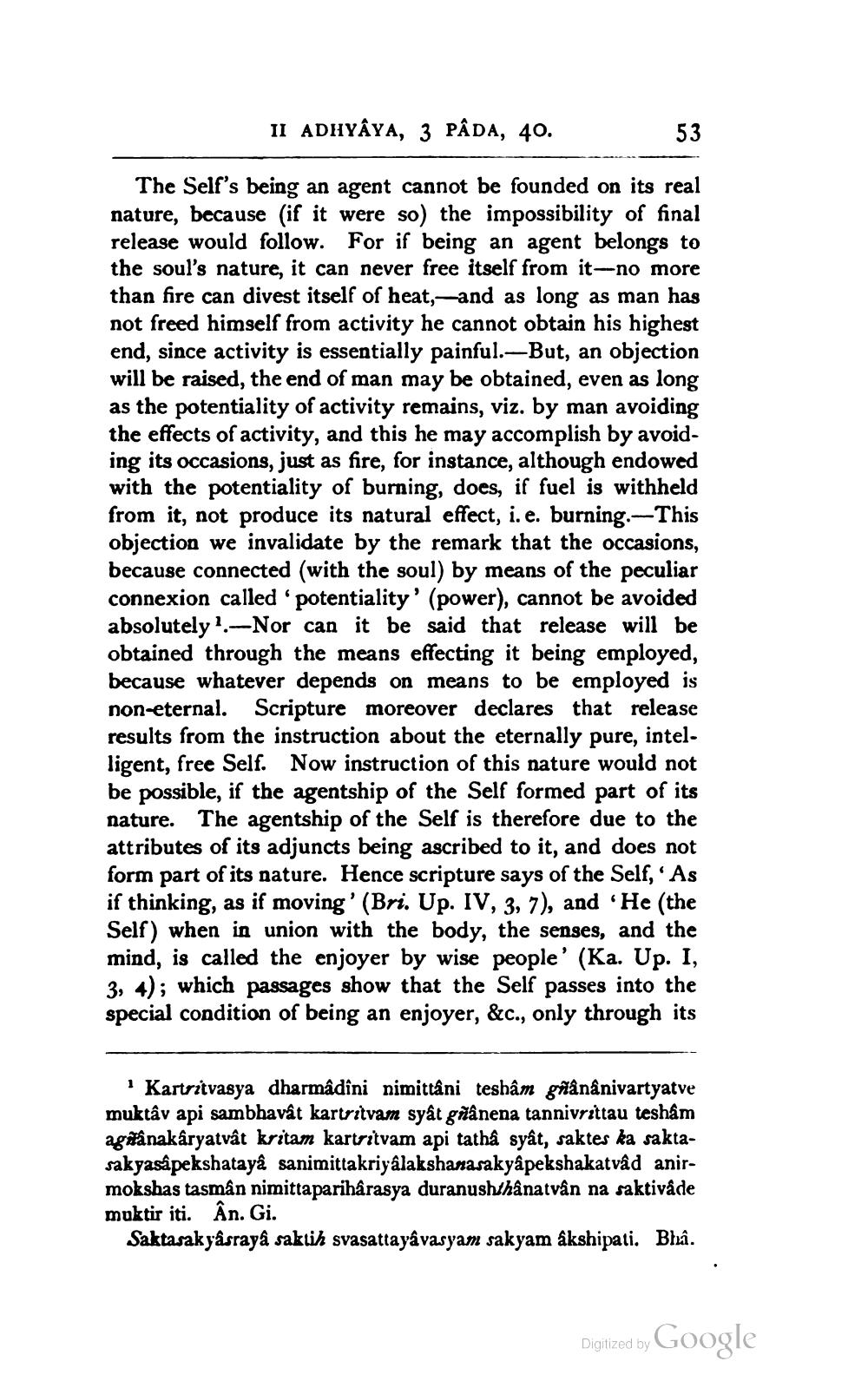________________
II ADHYAYA, 3 PÂDA, 40.
53
The Self's being an agent cannot be founded on its real nature, because (if it were so) the impossibility of final release would follow. For if being an agent belongs to the soul's nature, it can never free itself from it-no more than fire can divest itself of heat, and as long as man has not freed himself from activity he cannot obtain his highest end, since activity is essentially painful.-But, an objection will be raised, the end of man may be obtained, even as long as the potentiality of activity remains, viz. by man avoiding the effects of activity, and this he may accomplish by avoiding its occasions, just as fire, for instance, although endowed with the potentiality of burning, does, if fuel is withheld from it, not produce its natural effect, i.e. burning.-This objection we invalidate by the remark that the occasions, because connected (with the soul) by means of the peculiar connexion called 'potentiality' (power), cannot be avoided absolutely!.-Nor can it be said that release will be obtained through the means effecting it being employed, because whatever depends on means to be employed is non-eternal. Scripture moreover declares that release results from the instruction about the eternally pure, intel. ligent, free Self. Now instruction of this nature would not be possible, if the agentship of the Self formed part of its nature. The agentship of the Self is therefore due to the attributes of its adjuncts being ascribed to it, and does not form part of its nature. Hence scripture says of the Self,' As if thinking, as if moving' (Bri. Up. IV, 3, 7), and .He (the Self) when in union with the body, the senses, and the mind, is called the enjoyer by wise people' (Ka. Up. I, 3, 4); which passages show that the Self passes into the special condition of being an enjoyer, &c., only through its
1 Kartritvasya dharmâdîni nimittäni teshâm gñânânivartyatve muktav api sambhavât kartritvam syât gñânena tannivrittau teshâm agitânakaryatvat kritam kartritvam api tatha syât, saktes ka saktasakyasapekshataya sanimittakriyalakshanasakyâpekshakatvad anirmokshas tasman nimittapariharasya duranushthanatvân na saktivåde muktir iti. Ân. Gi.
Saktasak yâsraya saktih svasattayâvasyam sakyam ákshipati. Bhâ.
Digitized by
Digitized by Google




